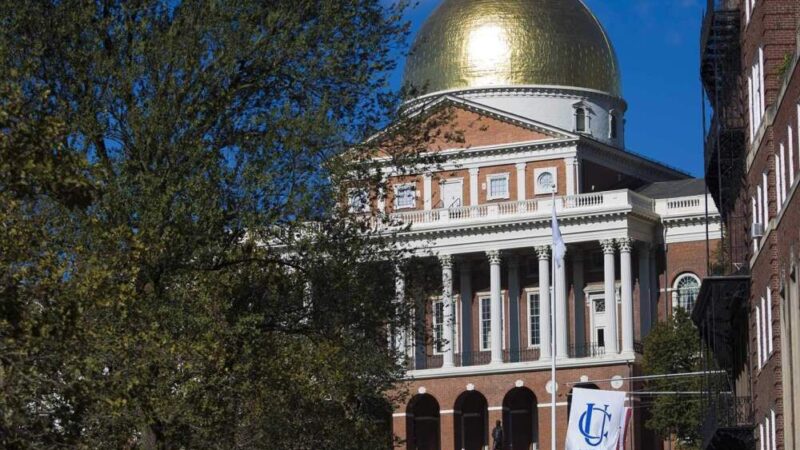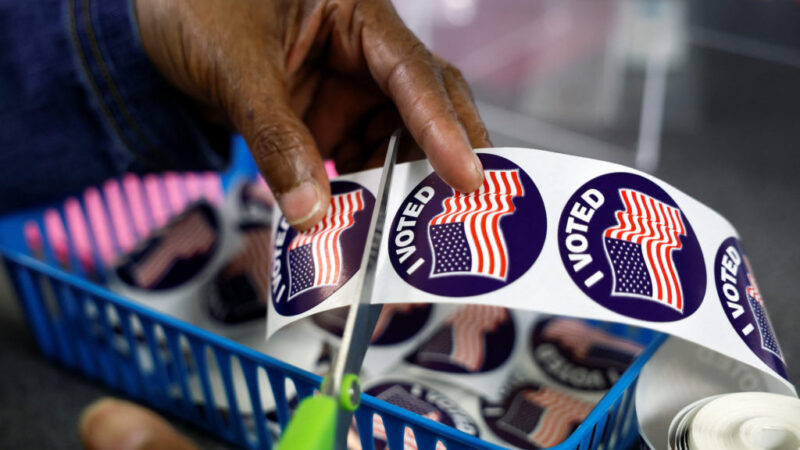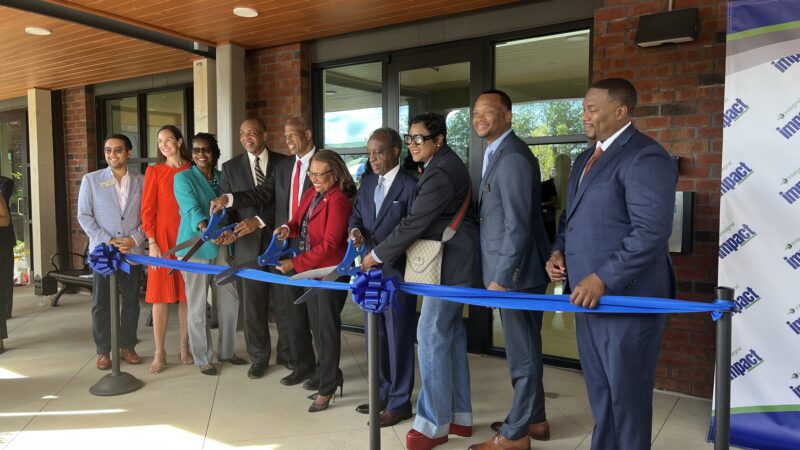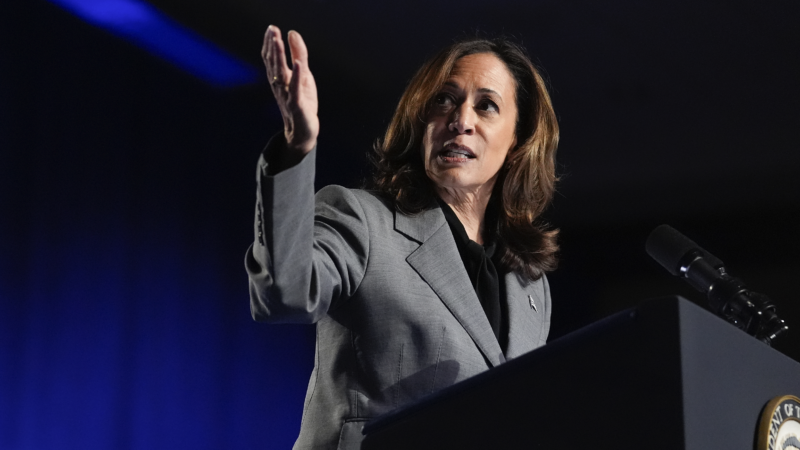Auditor authority: How Question 1 seeks to allow state audits of Mass. Legislature
Question 1 represents the latest chapter in a contentious debate over whether the Massachusetts state auditor has the authority to examine certain activities of the state Legislature.
Supporters of the proposed audits say they would boost government transparency, while opponents argue that the audits would be an intrusion by the executive branch onto the legislative branch of government.
What exactly would Question 1 do?
If passed, the law would allow and require the state auditor’s office to conduct regular performance audits of a broad range of Beacon Hill lawmaker activities. Specifically, it would enable the office to “audit the accounts, programs, activities and functions” of the Legislature.
State auditor is an elected position, now held by Diana DiZoglio, a former state senator from Methuen. With a staff of roughly 200, the office is required to conduct performance audits — not financial audits — of all departments, offices, commissions, institutions and activities of state government. While the Legislature is not named in the statute governing the office, a “yes” vote would change the law to list the Legislature explicitly.
What your vote means, as written by the secretary of state’s office
“A ‘yes vote’ would specify that the State Auditor has the authority to audit the Legislature.
A ‘no vote’ would make no change in the law relative to the State Auditor’s authority.[/keyfigures]
What do supporters argue?
DiZoglio was elected in 2022 after promising to audit the Legislature, an idea with overwhelming support among citizens. A recent poll suggests 80% of Massachusetts voters back the measure versus 6% who disapprove.
DiZoglio told WBUR the audits would shine light on a Legislature “frequently ranked as one of the least transparent, least accessible, and least accountable in the nation — not subject to public records laws, not subject to open meeting laws, bills getting passed in the middle of the night with no recorded roll calls.”
She said the audits would examine details of state contracts and procurement practices to ensure compliance with laws and rules; review training procedures relative to sexual harassment, ethics, and cybersecurity; and bring to light any non-disclosure agreements that have resulted from illegal behavior by lawmakers.
Mary Connaughton, director of government transparency at Pioneer Institute who ran for auditor as a Republican in 2010, testified in favor of the ballot initiative in March. She said the audits would be about empowering voters to better “give instructions to their representatives.”
“But how can we do so when we don’t know what our representatives are doing or not doing?” she said. “A comprehensive state audit is the perfect way to find out.”
What do opponents argue?
When to vote
- Registration deadline: Oct. 26
- Apply to vote by mail: Oct. 29
- Early voting: Oct. 19-Nov. 1
- Election Day: Nov. 5
Unlike other ballot initiatives, Question 1 has no registered opponents. But some political scientists say the measure threatens the separation of powers enshrined in the state constitution.
Professor Jerold Duquette, an expert in Massachusetts politics at Central Connecticut State University, said he voted for DiZoglio and champions transparency. But he argued the law would make Massachusetts an outlier among states. He said the auditing powers could give DiZoglio leverage to harass the Legislature, “because they will be compelled to produce documents, to produce records, which means that she’ll have something that she can use in negotiations with the Legislature over anything.”
DiZoglio’s predecessor, Suzanne Bump, has come out against a measure she said would “politicize and degrade the office” of auditor. In a hearing on Beacon Hill, Bump said DiZoglio’s past work as a lawmaker poses a conflict with her intention to audit the chambers.
Bump said it’s one thing to conduct an administrative audit of the Legislature — in fact, Bump said at the hearing that when she was first elected, she advocated for the ability to conduct such an audit. But she said DiZoglio’s initiative goes further, and risks veering into the legislative process itself.
“Because of the auditor’s stated intention, both in the requests that she’s already made for documents from the Legislature and all of the goals that she enunciated today in her testimony, I can see the potential for abuse,” Bump said at the hearing.
Didn’t DiZoglio already try to audit the Legislature?
After taking office in early 2023, DiZoglio sent formal requests for documents to Speaker of the House Ron Mariano and Senate President Karen Spilka, stating she intended to examine “active and pending legislation, the process for appointing committees, the adoption and suspension of House and Senate rules and the policies and procedures of the House and Senate.” Both lawmakers refused to comply.
In November 2023, Attorney General Andrea Campbell’s office stepped in, saying the auditor “does not currently have the legal authority to audit the Legislature without the Legislature’s consent.”
But the attorney general did allow the question to appear on the ballot. Pending the ballot initiative, Campbell specified that the analysis only applied to current law.
What happens if it passes?
Should Question 1 succeed in November, the Legislature could decide to comply with a new audit effort by DiZoglio’s office. Or officials could appeal to the courts, and leave it up to the judicial branch to decide whether (or to what extent) the executive branch can audit the legislative branch.
At the state’s highest court, justices could completely overturn the law, or allow more limited audits that don’t infringe on what experts call “core legislative functions.”
According to the Center for State Policy Analysis at Tufts University, the auditor would not be able to examine “votes, debates, committee assignments, policy priorities.” Other activities in the legislative branch could be fair game, however, including “compliance with employee training rules, cybersecurity norms, and purchasing practices.”
In Campbell’s letter to DiZoglio, she said the AG’s office may need to examine whether constitutional limitations affect how the law would be applied.
This article was originally published on WBUR.org.
GPB evening headlines for September 20, 2024
The State Election Board passed arguably the most contentious of 11 new rules that it had been considering at a meeting today. Hundreds of students at schools across the state walked out of class today in solidarity with students at Apalachee High School. Vice President Kamala Harris' campaign turned to personal stories, including two with Georgia ties, at a rally with Oprah Winfrey.
Affordable senior housing complex holds grand opening in Doraville
Housing leaders from Dekalb County the Us department of Housing and Urban Development held a ribbon-cutting in Doraville for a 100-unit affordable senior housing complex.
Harris says strict abortion laws lead to ‘predictable’ suffering for women
Speaking in Atlanta Friday, Vice President Harris called tougher abortion laws “immoral” and slammed Republicans for what she called “longstanding neglect” around maternal mortality.
30 minutes from Springfield, another Ohio city welcomed immigrants — and got a boost
At a time when immigration has become a flash point for politicians telling ominous stories, some communities are actively courting immigrants.
Former Republican Lt. Gov. Geoff Duncan urges fellow conservatives to vote for Harris
NPR's Mary Louise Kelly talks to former Georgia Lieutenant Governor Geoff Duncan -- a lifelong Republican -- about why he's endorsing Vice President Kamala Harris this election.
The best new music out today, from Jamie xx, BLACKSTARKIDS and Bob Dylan
Daoud Tyler-Ameen and Lars Gotrich from NPR Music round up the best new releases out Friday, from artists like Jamie xx, BLACKSTARKIDS and Bob Dylan.





